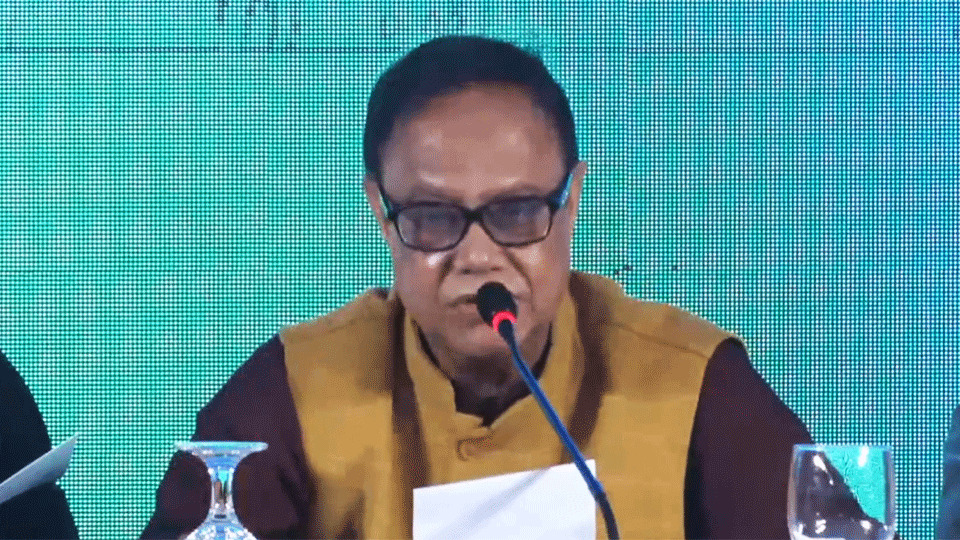Bangladesh Bank Governor Ahsan H Mansur said the country’s banking sector had been brought back from the brink of a near-collapse over the past year through a series of targeted reforms and decisive actions since he assumed office.
Speaking at a discussion titled “Interim Government’s 365 Days,” organised by the Centre for Policy Dialogue (CPD) in Dhaka, the governor said the sector was “standing on the edge of a cliff” when the interim government took charge in August last year.
“Our immediate priorities were to stabilise the macroeconomy and initiate reforms in the financial sector,” Mansur said, adding that while comprehensive reforms could not be completed in a single year, the process had been set in motion across all areas.
He said Bangladesh Bank engaged with international financial institutions shortly after he took office to maintain credit lines. “We assured them of full repayment of every dollar we owed – and we delivered. That kept us from ending up in a situation like Sri Lanka or Pakistan,” he said.
According to Mansur, remittance inflows and steady export earnings played the biggest role in meeting repayment obligations. However, controlling inflation remains a major challenge.
Since 14 August last year, the central bank has not sold a single dollar from reserves, opting instead to purchase at Tk122 despite pressure to devalue. Inflation has already fallen below 10 per cent and is expected to drop to under 5 per cent in the coming years, he said.
While the balance of payments has moved into surplus, investment flows are yet to pick up. “Large investors will likely wait for political clarity before committing funds, but the groundwork for post-election investment is already in place,” Mansur said.
Explaining the decision not to form a banking commission, the governor said it would have taken six to nine months to produce a report, delaying urgent decisions. Instead, three dedicated taskforces are working on banking sector reforms, central bank operations, and the recovery of laundered money.
Recovering funds siphoned abroad is the most complex challenge as it requires coordination with eight to ten ministries, he added.
Mansur outlined ongoing legal reforms, including major amendments to the Bank Companies Act, significant changes to the Money Laundering Act to introduce asset recovery provisions, and wide-ranging revisions to the Bangladesh Bank Order to strengthen accountability and independence.
Further changes are planned to the Deposit Insurance Act and the Money Loan Court Act to speed up resolution of long-standing loan default cases.
The Bangladesh Bank Resolution Ordinance will also be amended to allow the central bank to take control of any institution facing liquidity crises due to irregularities. “No more leniency — if a bank cannot function properly, we will take it over,” Mansur warned.
A new body will be created for “360-degree monitoring” of all banks to detect and address irregularities in a coordinated way.
The governor said steps are being taken to push the economy towards cashless transactions, including the promotion of QR codes, wider credit card usage, expansion of nano-loans, financial literacy for schoolchildren, Tk200 student bank accounts, reforms in housing finance, restructuring of the revenue administration, and lowering smartphone prices to boost digital banking adoption.


